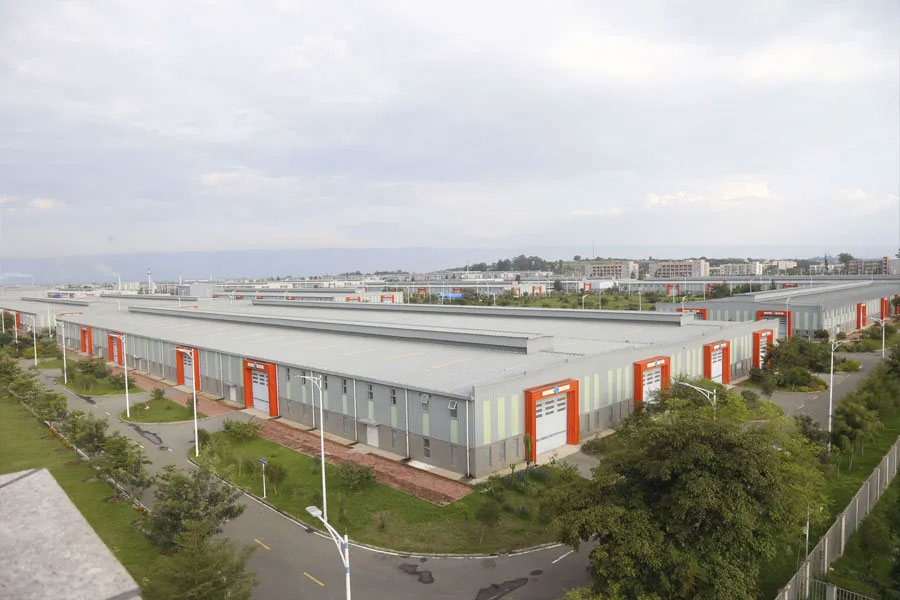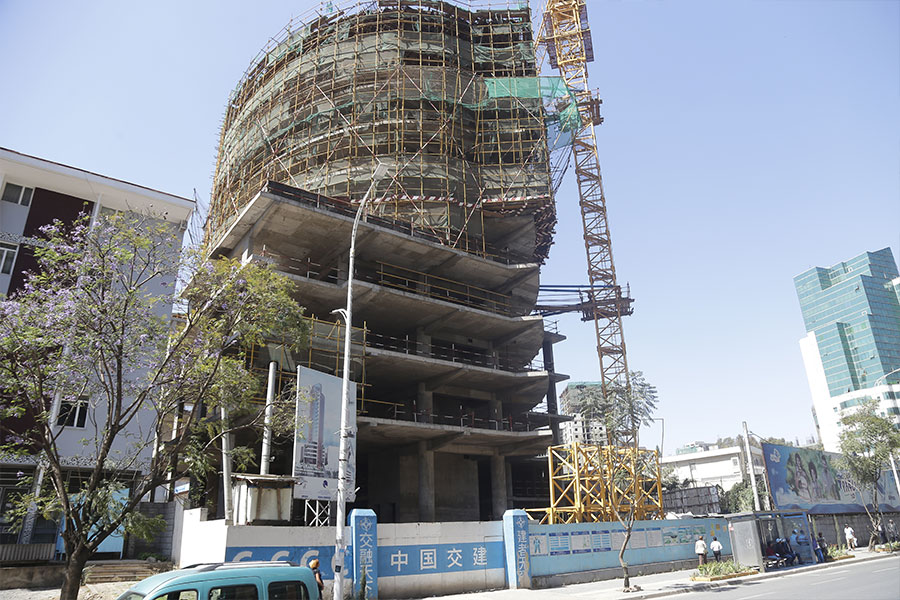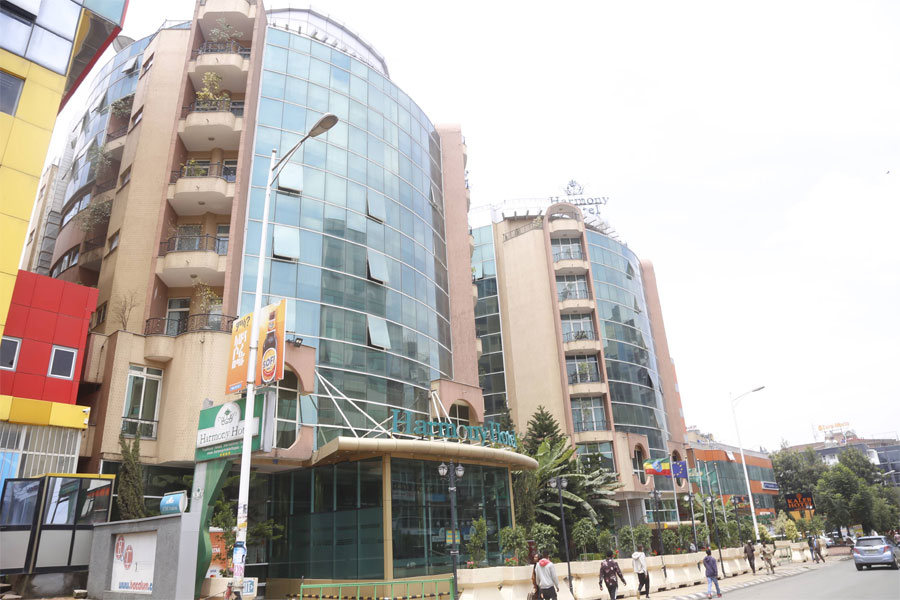
View From Arada | Apr 20,2024
A new directive is on the horizon to make workers' compensation insurance policies mandatory for companies hiring seasonal workers. Drafted by experts of the Ministry of Labour & Social Affairs, the directive will compel employers to pay for the insurance coverage.
The directive is expected to significantly impact industries that rely heavily on daily workers, such as the agriculture sector and the construction industry. It also demands employers provide free shelter, transportation, and medical treatment to seasonal labourers and includes a clause that dictates payment to next of kin in the case of work-related deaths. According to the directive, employers are required to submit the insurance policy for their seasonal workers to authorise within three days after recruitment.
Officials hope it will provide temporary workforces and their families with more comprehensive protection against work-related injury, disability or death. The insurance industry, which contributes less than one percent of the country's GDP, also gains if the directive goes through.
Despite legal provisions holding employers liable for work-related accidents and occupational ailments, no laws commit them to pay for insurance policies covering the workforce. The directive aims at asserting the rights of labourers, including their entitlement to insurance, overtime payments and forming labour unions, according to Dereje Taye, communications director at the Ministry.
"If the directive sees a green light, it'll give regional authorities the mandate to intercede when laws are not complied with," Dereje said. "It'll also place tighter regulations on employment agencies."
Millions of people in Ethiopia rely on seasonal labour to make a living, most of which are engaged in agricultural work, mostly in rural areas. In urban settings like Addis Abeba, construction workers would be the directive's biggest beneficiaries.
"We don't even get our salaries properly, let alone being secured with insurance," said Zeleke Sewmehon, a daily labourer working on a construction site in the Gotera area, welcoming the Ministry's attempt to make the policy compulsory.
The insurance industry hopes to capitalise on the policy, which will create a significant source of revenues for the country's fledgling industry.
"It provides a golden opportunity for the insurance industry," said Ebsa Mohamed, an insurance expert and manager at Alpha Consultancy Plc.
Ebsa recalled how the third-party liability coverage expanded after the government made it compulsory eight years ago.
Workers' compensation insurance policies provide employees coverage for medical expenses or compensation to next-of-kin in the event of death. In the latter case, the standard amount of compensation paid by Ethiopian insurance firms ranges from 10,000 Br to 150,000 Br. Premiums are determined by the number of beneficiaries and the nature of the work. These insurance policies account for less than four percent of the gross written premium of insurance firms, totalling 11 billion Br during the last fiscal year.
Over a dozen insurance firms provide the policy excludes any liability for injury, disease or death resulting from war, riots, and strikes or due to involvement in political affairs.
Zafu Eyesuswork, a founding shareholder of United Insurance and a veteran in the insurance industry, sees the bill positively.
"From the outset, the government was not supposed to allow employers to influence the compensation, which made it hard to regulate," said Zafu.
The policy would institutionalise the compensation procedure and secure the daily labourers, according to Zafu.
However, not everyone is thrilled with the development.
Hussein Ambo (PhD), president of the Ethiopian Coffee Growers, Producers & Exporters Association, believes the directive could not have come at a bad time. His Association is a major player in an industry that depends heavily on seasonal labourers, particularly during the harvest season from August to December.
"It's not a wise move at a time when the coffee industry is under stress," says Hussein, referring to the lack of working capital brought on by the central bank's freeze on collateralised loans.
Though the coffee industry has been exempted from the freeze, coffee businesses continue to report having trouble accessing financing from commercial banks.
PUBLISHED ON
Oct 02,2021 [ VOL
22 , NO
1118]

View From Arada | Apr 20,2024

Fortune News | Nov 18,2023

Fortune News | May 16,2020

Fortune News | Jan 14,2023

Viewpoints | Apr 30,2021

Commentaries | Dec 14,2024

Fortune News | Nov 30,2019

Agenda | Jul 31,2021

Commentaries | May 11,2024

Radar | Mar 02,2019

Dec 22 , 2024 . By TIZITA SHEWAFERAW
Charged with transforming colossal state-owned enterprises into modern and competitiv...

Aug 18 , 2024 . By AKSAH ITALO
Although predictable Yonas Zerihun's job in the ride-hailing service is not immune to...

Jul 28 , 2024 . By TIZITA SHEWAFERAW
Unhabitual, perhaps too many, Samuel Gebreyohannes, 38, used to occasionally enjoy a couple of beers at breakfast. However, he recently swit...

Jul 13 , 2024 . By AKSAH ITALO
Investors who rely on tractors, trucks, and field vehicles for commuting, transporting commodities, and f...

Jul 5 , 2025
Six years ago, Ethiopia was the darling of international liberal commentators. A year...

Jun 28 , 2025
Meseret Damtie, the assertive auditor general, has never been shy about naming names...

Jun 21 , 2025
A well-worn adage says, “Budget is not destiny, but it is direction.” Examining t...

Jun 14 , 2025
Yet again, the Horn of Africa is bracing for trouble. A region already frayed by wars...